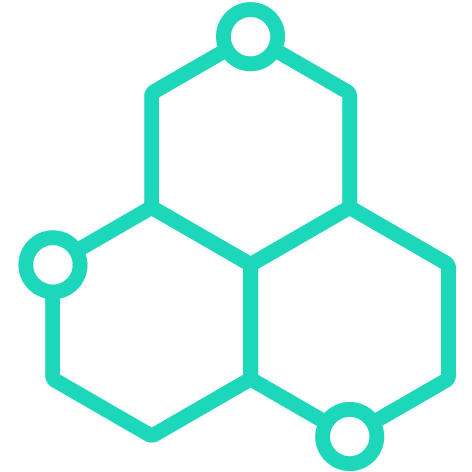
Crossing the digital divide through collaboration – Access Lab 2021 panel debate
A key highlight of our 2021 Access Lab event was the panel debate: Crossing the digital divide through collaboration. The session looked at a widely discussed and debated industry topic and one that we have previously written on: Challenging the Digital Divide.
Entitled ‘Crossing the digital divide through collaboration’ the internationally represented panel was chaired Liz Sayce OBE, visiting senior fellow at London School of Economics and former CEO of Disability Rights UK.
She was joined by Naomi Smith, librarian at the University of East London; David Bukenya, deputy university librarian and head of library systems and electronic services at Uganda Christian University; Professor Timothy Renick, executive director, National Institute for Student Success at Georgia State University; and Peter Berkery, executive director at the Association of University Presses.
Setting the scene
The focus of the discussion centered around the complexities of the issues when it comes to access to content and services.
Liz Sayce has a background in disability rights and mental health policy. She kicked off the session by providing an experience she came across with a blind colleague in education. He had to give up his masters degree study simply because he could not access the resources. She also highlighted how inequalities have grown in the Covid era as well as describing how it has led to emergent solutions with NGOs working hard to ensure access to libraries and resources for people so they don’t lose out.
The panel agreed that as providers of scholarly information librarians and publishers must address these issues and find ways to work together to close the access to knowledge gap. Participants shared their own experiences and solutions to issues which they have implemented in their respective roles.
Liberating the library
Liz invited Naomi Smith to offer insight into the concept of ‘liberating the library’. Naomi described how the alternate descriptor of ‘decolonizing the library’ has proven problematic for some people. However, she emphasized the need to have open and honest conversations so that we can “talk and enforce change.”
Naomi, who is currently studying a masters in librarianship at University College London (UCL), also outlined the impact of ethnicity when it comes to knowledge access. She explained: “digital inequality is not just a class problem; class and race are intersectional.”
Wide-ranging experiences
David Bukenya emphasized the need for cohesion on these topics: “We need to be united. The pandemic has highlighted the depth and magnitude of the divide.”
His experience of the impact of the pandemic in Uganda has shown that access to knowledge is not a single solution issue.
He described how, even with access to the internet, access to knowledge cannot be assumed. It will depend on the quality of connectivity, the availability and crucially, performance of devices together with individual literacy levels combined with access to effective support for online learning.
He stressed the need to bridge the gap with publishers: “the digital divide is not a clear issue for specific groups of people.”
Moving to the perspective from the other side of the Atlantic, US Florida-based Peter Berkery exposed the lack of diversity in scholarly communications with many people holding professional roles being white, able, cis-gendered, and, in senior ranks, overwhelmingly male.
Success in higher education
Timothy Renick leads students’ success efforts at Georgia State University. He explained how the university has changed the way it engages with its cohorts, using digital technology to provide a supportive and inclusive route to completing university degrees. It has achieved success in the last year, attracting international media attention with a recent piece in the Guardian.
Georgia State has radically overhauled its outcomes. From analyzing achievement gaps to implementing digital solutions such as an AI-powered chatbot, which answers questions from students 24 hours a day. The implementation of smartphone accessible support services has also removed barriers to bureaucracy.
This combination approach has reduced the number of students wanting to study but not turning up on day one by 37%. Understanding the complexities and challenges around form filling and navigating the application system has led to more black students graduating with bachelor’s degrees from Georgia State than any other in the US. No mean feat when you are reminded of Georgia State’s segregated white-only heritage.
Questions for the panel
The session was finished off with several questions from the audience to the panel.
One request was for what small changes can be implemented immediately to make an impact.
Suggestions included not ever underestimating the impact small changes can make. Georgia State has lowered its expected entry standards as it cannot control what happens to students before they arrive. This has ultimately produced a more diverse and successful student cohort.
Another area raised by session attendees was on the importance of collaborations and partnerships. Naomi pointed out that it is important to have a conversation about the inherent bias often evident in algorithms. Liz described how in the disability space an often-used mantra ‘nothing about us without us’ emphasizes the need for co-producing.
David advised that people need access to the right technology combined with the right content. He said the divide is not just created by access alone. Collaboration between tech firms, publishers, libraries, end users and governments is vital to successfully crossing the digital divide.
Positive future
Tim from Georgia State is optimistic about the future: “we need to resolve the divide and when we do so the results can be transformative.”
Liz closed the session with her key take outs: “One of the things I have taken away is the importance of affordable, inclusive small and system wide changes done in collaboration not just between content specialists and tech people but also the communities involved.”

Interested in Access Lab?
Visit our Access Lab 2021 webpage to find out more about our speakers and case studies.
